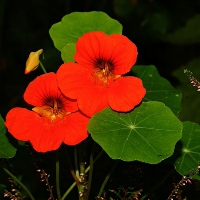With the change of educational methods, it is now the job of parents to help their children learn. Many parents are really responsible, urging their children to learn every day, helping their children with homework, and helping them solve problems. But it is this responsibility that has led to the loss of children's ability to learn independently. So how to stimulate children's ability to learn independently?
How to stimulate children's ability of autonomous learning
1. Cultivate interest in learning and stimulate students' awareness of autonomous learning
Some psychologists have said that nothing in the world can increase the sense of satisfaction more than success, and nothing can summon the efforts to further success more than success. If we can cultivate children's self-confidence, will children be more willing to take the initiative to learn? I believe the answer is certain. If students want to learn English actively, they should first arouse their children's interest, and then stimulate their motivation to learn English, so that children will be more willing to learn English.
2. Create an environment of independent learning and form an atmosphere of independent learning and inquiry
If we want to cultivate students' ability of autonomous learning, we must also create the best atmosphere for students' autonomous learning. Learning environment is very important, especially for younger children. Without a good learning environment, it is difficult for playful pupils to form a learning habit. Therefore, we should try our best to leave students a learning space, so that students can really participate in independent learning and exploration. Give students time and opportunities to learn independently, cooperate and explore before, during and after class, and apply new knowledge.
3. Don't preach and maintain a normal family atmosphere
Some parents believe that they must always say a lot of truth when asking their children to study hard. In fact, this is not the case. Family education should pay attention to the formation of, and pay attention to imperceptibility. Children's good learning habits rely on repetition to become natural. A strong interest in learning depends on little by little. It is boring to say that the church will destroy the atmosphere suitable for learning. Therefore, parents should learn to speak short, maintain a normal family atmosphere, and let children feel peaceful, quiet, and secure.
4. The family atmosphere should not be "grand and vigorous". It is true to be plain
Because of high hopes for children, it is easy for parents to make many educational plans, seize every opportunity and leisure to let children learn this and that, and make family education vigorous and powerful, which is unnecessary. Children's learning lasts for nine or ten years. The vigorous atmosphere will disrupt the normal learning process. For example, the rice, noodles and drinking water we eat are all mild. Because they are mild, they can be eaten for a long time, and plain can be used for a long time. Therefore, the atmosphere suitable for children's learning should not be vigorous. Family education, which starts with vigour, must end with a beginning but no end.
How to stimulate children's ability to learn independently? Parents should cultivate their children's interest in learning, create an environment for children to learn independently, do not nag and preach at ordinary times, maintain a normal family atmosphere, guide children to learn independently step by step, and stimulate children's ability to learn independently.

